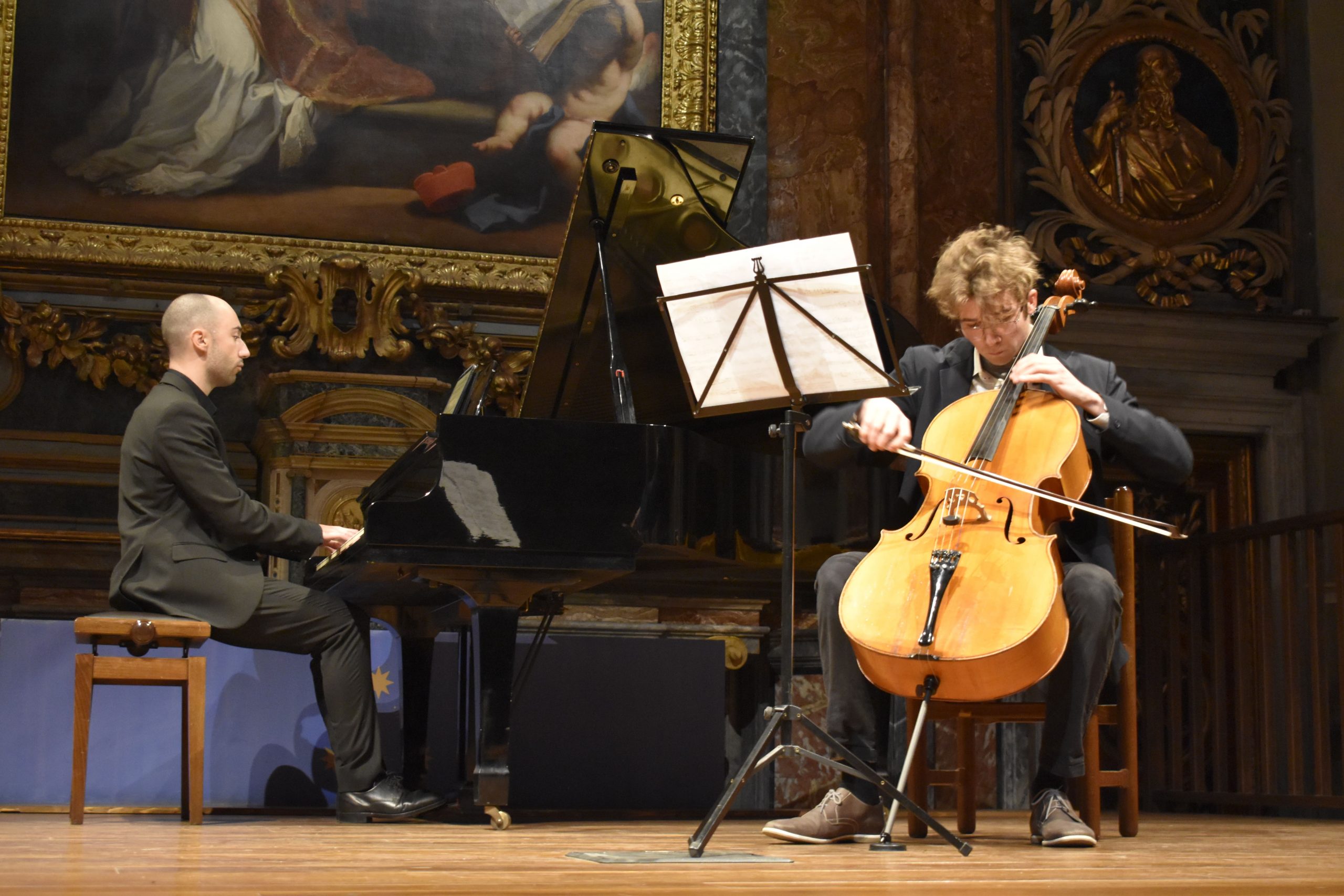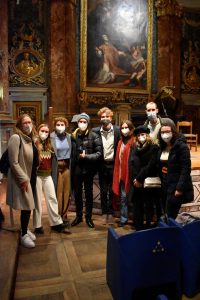“I learned how to live on my own and make my own decisions”

Tadas Petrulis, student of Psychology// Erasmus studies in Italy, University of Torino
How did you decide to take part in the Erasmus + program?
Since I was in my last years of school, I wished to visit the South of Europe. The weather and mentality was cold here, Lithuania and I wanted to find something different, perhaps something warmer. The Erasmus programme was a great way of actually getting to know the culture of any other foreign country. I always wanted to actually understand other societies, how people think, what are their traditions and ways of communicating things. So naturally this programme gave me a chance to actually experience what it feels like to live in another land, far away from home, not just as a tourist, but as an actual member of the society there.
Why Italy? Why UniTo? What attracted you?
I always thought of either Spain or Italy. My decision was made by choosing my professor for learning the language in the VMU, before going to the mobility programme. The more fitting choice for me was Stefano M Lanza, who is a native Italian and a remarkable connoisseur of Lithuanian language. By choosing university, I was more interested in the actual location of it, rather than the university system itself. Before choosing my Erasmus I actually spoke with a few Italians and all of them recommended me to go to Turin. Because it is a grand city full of life, filled with young students like me. It was not too big for me, but still larger than the capital of Lithuania.

What are the studies of psychology in Italy? Is the same approach to psychology in Lithuania or different?
Truthfully, I hoped that the studies in Turin would be more interactive and practical. In Unito, they have a more theoretical approach, at least to psychology. By saying this, I mean that all of my subjects of psychology would be determined only by one exam, which for me looked more like a roulette of being lucky and getting right questions. So I was rather puzzled why there are no group projects or actual works to write by yourself in this university. I was used to VMU style of learning, where the most important info I learned was through analysing other scientists’ research and writing your own articles and works, expressing your own opinion about it or making conclusions about these researches.
So the approaches are completely different: In VMU we are taught to work in groups, analyse articles by ourselves and write actual works on the scientific bases and in Unito these things does not to be as important, since the only most important thing is to prepare for the exam and memorize the info that has been given to you for exam, because it is only thing that determines your actual mark.
Why do you think it is important to experience studying abroad? What kind of skills or competencies have you got?
First of all, I learned how to live on my own and make my own decisions. Second of all I actually experienced another culture, another mentality, by which I truly understood that there exist different life beyond my country’s borders. Last but not least, I made friends from abroad with whom I made some of the greatest memories – we travelled together, played board games, rehearsed and performed classical music together, spoke about differences between our societies and there many more great things to remember.
What about Italian language? Have you learnt it?
Indeed, I have learned it on the level that I could discuss psychology, morals, mechanics and many other topics with Italians in their own language. Without Italian in Italy – it would be hard to get around, because there is only a small percentage of Italians (at least where I lived) that speak fluent english. I passed all my exams in Italian, since all of the lectures were in Italian as well. So I feel that I have developed a decent level of Italian, but there is still so much space to perfect it more.
3 main tips for students who hesitate to go on Erasmus:
1. In a foreign country, nobody knows you, that means you can forge your identity how you want – it is a chance to accomplish things you never thought of doing before.
2. After this experience I started to view Lithuanian society and culture from a different perspective, I started approaching things in a different manner.
3. This trip can be a great chance of seeing things that you only heard in other people’s stories and experiencing things you never thought of.
Anything interesting you would like to add about: housing, food, travelling, friends, free time activities
About Italy:
The housing is much more expensive than in Lithuania, the dormitories are offered only for a first month at a higher price than the one you could find by yourself. Recommendation: use platforms where there is a small fee of registration, that way it is more safe and you can trust it more. Also in Italy it is expected to make at least a 2 month deposit at the start of living, which you would get only after end of the contract.
Food is great, prices are similar to Lithuania in restaurants and supermarkets. Believe me that if you like spaghetti, pizzas or anything else Italian, you will eat the best dishes ever!
Travelling the public transport in Turin did not cost too much, if you are 25 years old or less, because discounts are only judged by the age, but not the scholarly status. Travelling inside the country is more expensive, but if you travel only in your region (100-200 km radius) it is not very expensive by trains and really is something different because of the view to the Alps.
Free time activities are accessible, but it all depends on what you want – if you like classical music – there are theatres, if you like to work out – there are really cheap gyms, if you like board games – there are great board game cafes, if you enjoy travelling – there are trains, if you like hiking or swimming – there are Alps and lakes or even sea but all in all most important thing is that you would have a friend or group of friends with whom you could make these activities work.
Information is prepared by International Cooperation Department, Marketing Unit












